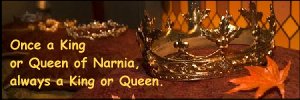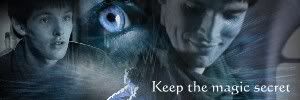In regards to the question of the placement of fauns in the Chronicles, I think that at least within Lewis's work each type of creature has the choice to be good or bad, not have this determined by what type of creature they happen to be (eg. LWW has evil dwarves and minotaurs, however they end up being, in the majority, on Aslan's side in PC).
The inclusion of myth seems based on the Tolkienien idea of Eucatastrophe. All good myths or fairy tales have an element of Eucatastrophe according to Lewis and Tolkien, and in this element reflect the "True Myth" of the gospel.
The presence of "gods"(lower case "g") in the Chronicles is not neccesarily a non-christian inclusion. There was a doctrine of the Catholic Church in the middle ages that what the pagan cultures interpreted as gods were mearly the seven arch-angels or demons trying to impersonate these angels. The Space Trilogy showed this aspect of Lewis's worldview. In That Hideous Strength Lewis suggests that the Oyarsi of the planets are the equivalent of the arch-angels and the suggestion of the "wraiths" that are evil. This doctrine that the pagan religions belief in the gods is mearly the misinterpretation of the arch-angels or the influences of the "wraiths" I would say is not neccesarily doctrinally incorrect. The almost-apocriphal book of Enoch supports this interpretation (Enoch is quoted in the book of Jude). This tells of the events surrounding the birth of the Nephilim.
It is, in my opinion, important to note the possible view of Tolkien and Lewis that the flaw in the birth of the Nephilim was the marriage of angel and man without an intervening generation. In Tolkien Beren does not marry the maia Melian but her daughter Luthien who was half-elf (not entirely Maia). In the Chronicles Caspian does not marry a star, but a star's daughter. The one part that might be questionable along this chain of reasoning is the marriage of Adam to Lilith.
It is, in my opinion, important to note the possible view of Tolkien and Lewis that the flaw in the birth of the Nephilim was the marriage of angel and man without an intervening generation. In Tolkien Beren does not marry the maia Melian but her daughter Luthien who was half-elf (not entirely Maia). In the Chronicles Caspian does not marry a star, but a star's daughter. The one part that might be questionable along this chain of reasoning is the marriage of Adam to Lilith.
But you could say that Adam's marriage to Lilith was flawed as well, couldn't you?

(avi artwork by Henning Janssen)
But you could say that Adam's marriage to Lilith was flawed as well, couldn't you?
Yes that is the place where the logic of the last paragraph breaks down, however the Adam/Lilith relationship didn't work out to well, come to think of it.
I read an article on Lewis two or three years ago that shed some light on this particular question for me. Along with some of the explanations given here, it said that Lewis' Space Trilogy and the Chronicles inclusion of mythological creatures were products of the idea that nothing in man is original - even the creatures he imagines. Hence, if those things we "imagine" did not come from ourselves, then where did they come from. Lewis wasn't asserting any sort of belief, but he did imagine where our imagined creatures came from - from another reality - either on a distant planet (such as those seen in the Space Trilogy) or dimension (such as Narnia). What he did believe is that if such creatures existed, that they would be, contrary to our imagined ideas of them, innocent (unless they had been corrupted by someone like the White Witch, etc.) and that we were the evil ones - the planet cut off from the rest of creation because of our sin - the silent planet.
In Narnia, we see those creatures (if they existed) how they were intended to be rather than what humans have made them.
Purely entertaining supposition on Lewis' part - and he never billed it as anything else.
That is part of the beauty of all literature. You discover that your longings are universal longings, that you're not lonely and isolated from anyone. You belong. ~ F.Scott Fitzgerald
I think he justs wants to unite the beliefs, because, myths are fun to read. It enhances some fantasy in the story. I guess he just included it for some entertainment or he just made it more magical, hence to make it "Narnia", a world with no impossible(s).

"Two sides of the same coin"
Lewis loved mythology even before he became a Christian and he continued to love it. I am a Christian and I love mythology. Do I believe mythology? Of course not. I take them as creative stories that ORIGINATED from Christianity.
Hermes? Moses.
Elysian? Heaven.
The Oracle of Delphi? Speaking in Tongues.
And many more similarities..... Mythologies are MISINTERPRETATIONS of the Christian religion. So detached they became a whole different religion.
(btw please don't think I am weird I in no way support pagan religion. I'm more on the traditional Baptist side.)
As for a faun playing a flute and sexual immortality? I am not informed about that.

signature by Beginte
I agree with some of you that Lewis redeemed the mythical faun by creating Tumnus. His intentions were good, not bad.
Although the connection with Pan (seducing females through music) is troubling, yet I find nothing morally wrong with Tumnus or his initial meeting with Lucy. I don’t see their relationship that way at all. Just because X is the legend/myth doesn’t mean Lewis used it that way – he didn’t.
Tumnus's evil intention was capturing Lucy and taking her to the White Witch, nothing more than that. He's dangerous because of taking service with the witch, not being a faun. He explains all this in the narrative. Lewis makes it clear through his decision and later friendship with Lucy that Tumnus is a very good faun. 
Hope I'm not bumping this topic, seeing the last post was from a couple months ago, but I just recently have been thinking on this very topic. This is an excellent topic. The history of the faun can be troubling. Even more troubling is Bacchus and Silenus. Either way, most would agree that these myths aren't the most wholesome. However, while those creatures exist in Narnia, they are not the same as the mythological creatures of our world. Remember, Aslan created Narnia and he created all the creatures in it. So, we shouldn't take these characters out of their context and setting. They are not the same creatures as the ones in our world's myths. They are Narnian creatures.
An interesting discussion, to say the least! But let us not forget, friends, that Lewis didn't write a book of the Bible and as a human is certainly open to errors. That said, let's take a look at how he viewed mythology and classical alchemy.
He said in The Abolition of Man -
We do not look at trees either as Dryads or as beautiful objects while we cut them into beams: the first man who did so may have felt the price keenly, and the bleeding trees in Virgil and Spencer may be far-off echoes of that primeval sense of impiety. The stars lost their divinity as astronomy developed and the Dying God has no place in chemical agriculture.
Very poetic prose and all that, but what does it mean? More importantly, does it answer the question of why he used pagan mythology in a Christian semi-allegory?
Looking at the wide range of Lewis's talents and studies, he didn't just write fiction - he wrote at least two books about classical mythology (The Allegory of Love and The Discared Image) and a poem called The Planets that is based on the medieval planetary system. He was very well-read on the subject, not as a fan, but as a scholar. So how do we reconcile the opposing views of Christianity and paganism?
Remember that Lewis was living in an age that had begun to question the existance of God. Atheism and science were becoming the authorities on morals. We lost our respect for God and His creation.
We do not look at trees either as Dryads or as beautiful objects while we cut them into beams:
We no longer even saw beauty apart from God - just the "machine" of nature. At least mythology saw truth and beauty in the nature of creation! I think, to Lewis, the loss of beauty was the cutting of the last strand that held us to God as a culture.
The stars lost their divinity as astronomy developed and the Dying God has no place in chemical agriculture.
Obviously, Lewis knew that the stars weren't a way of predicting the future or who you as a person would be. He's saying that as we learned more about nature, we lost our respect for it and the One who made it. In that sense, paganism has a higher aknowledgment of God than atheism - it believes in a power higher than man. And if fairy tales and myths still resonate with people, why not use a glimpse of beauty to point them to the Creator?


